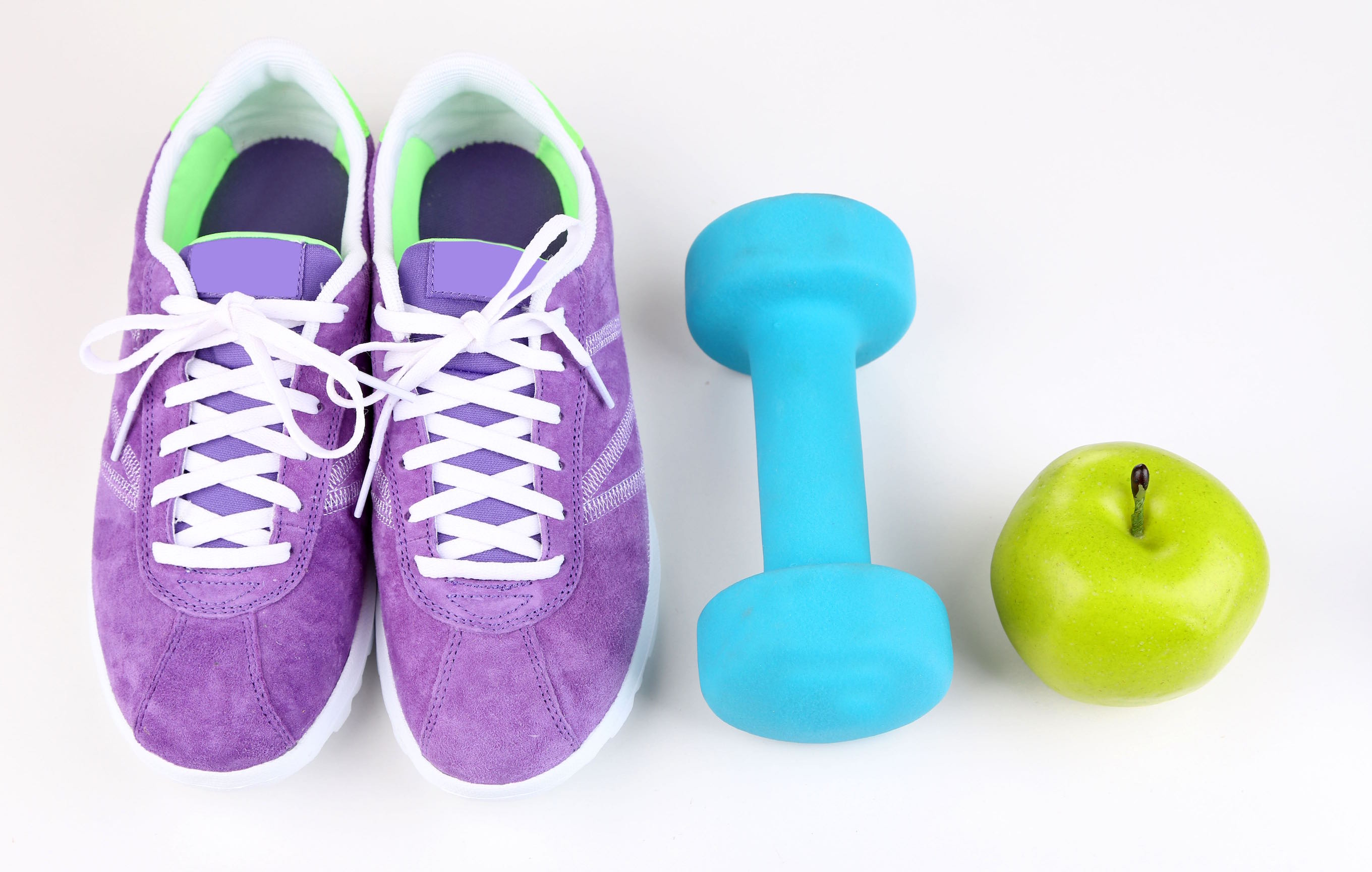
by: Andrea Laine White, Certified Nutrition Therapy Practitioner
Myth: The formula for weight loss is eating less and exercising more.
Truth: We are all biochemically and situationally unique and the way we metabolize calories is different. Many variables affect weight loss including stress level, balance of hormones, as well as the foods we eat and our level of exercise.
As a nutritionist, fitness instructor, and exercise enthusiast myself, I am a passionate advocate of exercise as a major component to a healthy lifestyle. Regular, consistent and varied exercise routines can provide a variety of benefits including: fat/weight loss, improved cardiovascular capacity, muscle building and strength, and overall muscle tone.
However, it is possible to over-exercise/over-train, which will have the opposite effect, causing your body to hold on to unwanted weight. When functioning correctly, exercise puts your body into a temporary state of stress, which will enhance your athletic performance and help you break through plateaus. After the exercise concludes, the stress response is over, and cortisol levels (the stress response hormone) return to normal. This is the effect of exercise in a normal, balanced body.
When the body is in a state of imbalance – from stress, hormonal changes and imbalances, poor nutrition, and/or over-exercising/over-training – cortisol levels will not return to normal baseline levels when the exercise concludes. As a result, cortisol levels remain high, and chronically elevated levels of cortisol signal the body to store fat and not build muscle.
Hormonal Changes & Imbalances
One of the ways our unique biochemistry determines weight loss/gain and how/where we store fat changes as we age. Specifically, for women in their peri-menopausal and menopausal years, the hormonal shift plays a significant role in weight management. During these years, the natural decline in the reproductive hormones estrogen and progesterone can lead to increased fat storage around the middle. Here’s why:
• Estrogen makes the female body more sensitive to insulin. When estrogen levels decline, insulin resistance goes up, increasing fat storage, particularly around the middle.
• The impact of cortisol is amplified. Estrogen and progesterone are anti-cortisol hormones. When these hormones decline, the female body becomes very sensitive to stress and does not regulate cortisol levels in the same way as before. This is an example of how exercise should be modified to our unique and changing biochemistry. The exercise that was appropriate and beneficial at 25 years old may not be appropriate and beneficial in your peri-menopausal and menopausal years.
• The brain neurotransmitters dopamine, serotonin, and GABA are also affected by menopause. This is because these neurotransmitters are closely linked to estrogen and progesterone. They impact mood, hunger, and cravings. So, you may eat more, but feel less satisfied and any extra calories will be stored around the middle as visceral (belly) fat.
So, what can you do to combat the affect of hormones and win the weight war? Here are my tips:
• Balance carbohydrates to manage insulin levels. The key is balance, not too much, but not too little either. I suggest you follow a moderate carbohydrate diet (15 – 30% total calories). Start with about 20% as a target and experiment with slightly higher and lower to see what works best for you.
• Consume essential fatty acids. Essential fat deficiency can slow down metabolism and calorie burning. Omega-3 fatty acids improve insulin sensitivity and the cells’ sensitivity to neurotransmitters.
• Modify exercise routine. By now we know the management of cortisol is essential for maintaining a healthy weight and beating belly fat. Reduce the intense, cortisol-spiking exercise and increase the mindful exercise for stretching, toning, and flexibility. Cardiovascular work is still important, but in moderate intervals and with rest time between. When exercising, the most important thing is to choose something you love to do. Dance, swim, hike, bike – whatever you’ll stick with!
• Support your neurotransmitters. Neurotransmitters are synthesized from amino acids, the building blocks of protein. Ensure adequate protein in the diet to support dopamine, serotonin, and GABA levels. High-protein diets (20 – 35% of total calories) can be effective for both short and long-term weight loss.
• Get the Women’s Hormone Panel Lab. The best way to start is to know where you’re starting from. This lab measures estrogen, progesterone, testosterone, cortisol, DHEA and others. Once you have a baseline, we can support you with a protocol personalized just for you. Treatment options to get you back to feeling your best include botanical and herbal supplements, bio-identical hormone supplements, natural hormone replacement, and a nutrition plan designed to meet your unique biochemistry.
If you are looking for support for weight loss and other symptoms associated with shifting hormones, contact Colorado Natural Medicine at 303.688.6698 or visit us at coloradonaturalmed.com.
Sources:
http://www.metaboliceffect.com/perimenopause-menopause-belly-hormonal-change-3-tips-to-beat-it/
http://chriskresser.com/why-you-may-need-to-exercise-less/
http://articles.mercola.com/sites/articles/archive/2009/07/04/Truths-that-Shatter-Prevailing-obesity-Myths.aspx
http://www.ncbi.nlm.nih.gov/pmc/articles/PMC2077351/

Leave a Reply